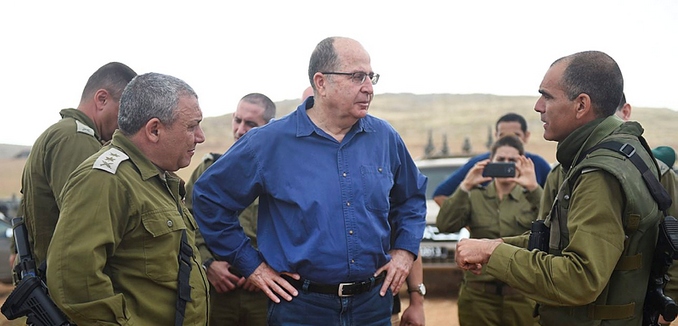Israel has “hard evidence” that Iran conducted weaponization work as part of their nuclear research, Israeli Defense Minister Moshe Ya’alon told The Washington Post’s Lally Weymouth in a wide-ranging interview published on Tuesday.
Ya’alon made this revelation while discussing Iran’s refusal to allow inspections of military sites as part of any nuclear deal. He also explained the dangers of offering Iran sanctions relief.
It is not just Parchin. They say very clearly, “We’re not going to allow inspections of military facilities.” Parchin is a military facility, and we have hard evidence that it was used for weaponization after 2003.
We understand that the Security Council sanctions are going to be relieved at the very beginning of the implementation of the deal. And that the E.U. bilateral sanctions will be relieved in parallel to the Security Council sanctions. The only part that they’re not sure about is the U.S. sanctions, which is under the Congress. That’s what they want — to have sanctions relief in order to rehabilitate the economy and to spend more money on rogue activities.
While we witnessed the negotiations about the number of centrifuges in the deal, the Iranians took over Yemen by proxy — by the Houthis — and they tried to open a new front of terror against us in the Golan Heights.
Ya’alon also spoke at some length about Syria. He explained that President Bashar al-Assad now controls about one quarter of Syria’s territory and his armed forces. Hezbollah and the Shiite militias answer to Iran’s Islamic Revolutionary Guard Corps-Qods Force, led by General Qassem Suleimani. Ya’alon also explained that Hezbollah is refraining from attacking Israel from Lebanon because it understands that “it’s not going to be worthwhile to absorb our response,” and so it has been opening a front against Israel in the “vacuum” on the Golan Heights in Syria.
While Ya’alon criticized the emerging nuclear deal for allowing “Iran to actually become a military nuclear threshold state,” he also raised concerns that, if a deal is reached, an Islamic Republic that is flush with cash from sanctions relief will be “ready to spend more money in sponsoring proxies to challenge and undermine moderate Sunni regimes in the region.” He said Iran’s next targets would likely be Bahrain and Saudi Arabia, specifically the Saudi oil reserves in Dharan.
In April, Ya’alon wrote an op-ed in the Post in which he argued that the emerging nuclear deal with Iran would make “war more likely.” Last week, Ya’alon charged that Iran was perpetuating sectarian conflict in Iraq to keep that country weak.
[Photo: Diana Hananshvili / Ministry of Defense ]




